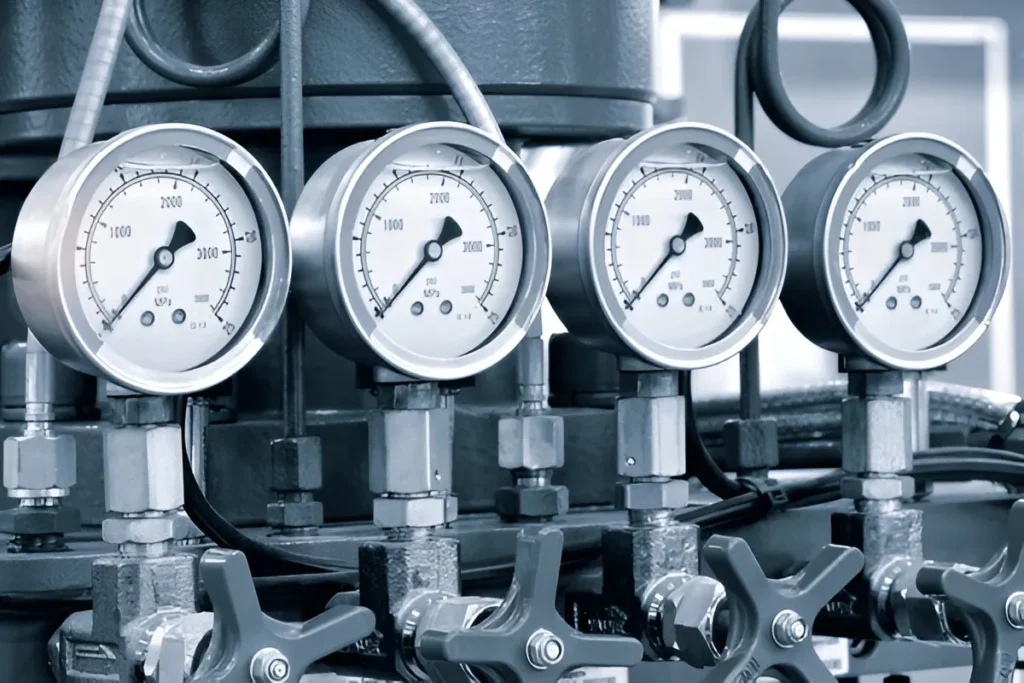Every process-driven industry—whether oil and gas, petrochemical, pharmaceuticals, or power generation—relies on intricate systems that prioritize precision, long-term durability, and uncompromised safety. These industries rely heavily on instrumentation and control systems to regulate processes efficiently, and central to these systems are instrumentation valves. These critical components not only manage the flow of fluids and gases but also play a pivotal role in safeguarding the overall operation.
In today’s blog, we take a deep dive into the evolving and essential role of instrumentation valves in modern process industries—from controlling minute flow changes to ensuring operational safety under extreme conditions.
Why Instrumentation Valves Are More Than Just Flow Control Devices
Instrumentation valves are often underestimated because of their small size, but their function is disproportionately large. These valves are designed to precisely monitor and control the flow of liquids and gases in instrumentation systems. From needle valve flow control applications to complex multi-valve assemblies, they’re instrumental in maintaining consistent pressure, temperature, and flow rate throughout the system.
Unlike standard piping valves, instrumentation valves are engineered for high-performance applications, where accuracy is non-negotiable. A sudden spike or drop in flow or pressure could compromise product quality, damage equipment, or even risk human safety. This is why the right valve selection is not just a procurement decision—it’s a strategic investment in plant integrity.
Categories and Applications in Process Industries
Instrumentation valves come in various types, each tailored for a particular function across different industries. Below are some of the most used:
1. Flow Control Valves
Among the most widely utilized in industrial environments, flow control valves manage the speed at which fluids or gases move through a system. They are essential components in applications such as heating systems, chemical dosing processes, and hydraulic setups. Trusted suppliers of flow control valves ensure these units are built to withstand high pressure, offer precise control, and are made from durable, high-quality materials.
2. Flow Regulator Valves
Often used in combination with sensors, flow regulator valves maintain a consistent flow rate regardless of changes in pressure or temperature. This function is especially critical in industries such as water treatment, where constant dosing is essential for operational efficiency.
3. Industrial Ball Valves
Industrial ball valves are crucial components in systems that require rapid and reliable shut-off capabilities. Their quarter-turn operation allows for rapid on-off control, making them ideal for emergency scenarios or where frequent opening and closing are required. Known for their durability, they can handle high-pressure and high-temperature environments with ease.
4. Manifold Valves
These valves are frequently integrated into instrumentation setups where they connect to pressure gauges or transmitters, enabling accurate monitoring and control. Manifold valves combine multiple valve functions into one block, offering better system integration, reduced leak paths, and ease of maintenance. Their compact design also saves space and minimizes installation time.
5. Needle Valve
Needle valves are ideal for instrumentation systems where precision is critical, as they allow fine control over fluid flow. Their finely tapered stems allow for gradual flow adjustments, making them ideal in scenarios where exact flow calibration is required, such as gas chromatography or analytical instrumentation.
Materials Matter: Why Stainless-Steel Valves Dominate
The material of construction is one of the most important considerations when selecting a valve, as it determines the valve’s resistance to pressure, temperature, and chemical compatibility. Stainless steel valves are widely preferred in industrial settings due to their excellent corrosion resistance, high-pressure endurance, and ability to maintain performance in extreme temperatures.
Especially in industries dealing with aggressive chemicals or saline environments, stainless steel ensures longer valve life and reduced maintenance cycles. They also offer superior compatibility with various media, making them the go-to option for engineers across the board.
Safety and Reliability: The Unspoken Role of Valves
While flow regulation is the visible function, instrumentation valves silently perform a far more critical role—safety assurance. Valve failures can lead to severe outcomes, including operational downtime and major system malfunctions. That’s why it’s crucial to work with trusted flow control valve manufacturers who prioritize quality and reliability.
Valves must pass rigorous testing protocols, including leak testing, pressure testing, and material verification. In safety-critical systems, redundancy is often built in using multiple valves in series or parallel to prevent total system failure in case one valve malfunctions.
Furthermore, valves that comply with international certifications (like ISO, API, or ASME standards) offer added peace of mind regarding their safety credentials.
Innovations in Valve Technology
As process industries move toward automation and remote monitoring, valves too have undergone transformation. Smart instrumentation valves now feature digital interfaces, positioners, and feedback loops that allow for real-time control and diagnostics. Integration with SCADA or DCS systems ensures that anomalies are detected early, and corrective actions can be taken proactively.
These smart systems enhance operational efficiency while reducing manual intervention, making them ideal for high-risk zones or unmanned facilities.
Choosing the Right Supplier: What to Look For
With such high stakes, choosing the right flow control valve suppliers becomes crucial. Here’s what you should consider:
- Product Range: A comprehensive range indicates technical capability and application versatility.
- Certifications: Always check for ISO, API, or industry-specific compliance.
- Customization: Can the supplier tailor valves for your specific application?
- Material Quality: Premium raw materials ensure long-term performance.
- Technical Support: Post-sale support and consultation go a long way in ensuring hassle-free operations.
The Bigger Picture: Valves as Enablers of Industrial Excellence
While often overlooked, valves form the arteries of a process system. They keep operations running smoothly, ensure product consistency, and—most importantly—safeguard lives and assets. From manifold valves in measurement systems to industrial ball valves in emergency shutdown applications, their contribution is undeniable.
As industries continue to push boundaries, instrumentation valves will play a key role in enabling smarter, safer, and more efficient operations.
Instrumentation valves are not just mechanical devices; they are precision instruments that carry the responsibility of maintaining process control, operational efficiency, and safety in high-stakes industrial environments. Whether it’s flow control valves in lab settings or flow regulator valves in power plants, each valve serves a purpose far beyond its size.
In an era where downtime means loss and precision means profit, investing in the right valve technology is no longer optional—it’s a necessity.
Looking for industry-grade solutions that align with today’s complex process demands?
Arek Solutions offers a full spectrum of instrumentation valves, including flow control valves, manifold valves, and industrial ball valves, designed to meet the highest standards of quality and performance. Explore our offerings at Arek Solutions.


